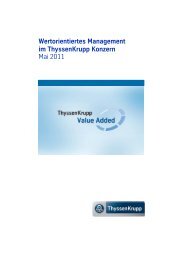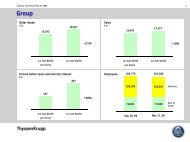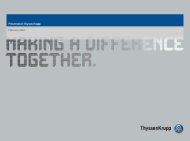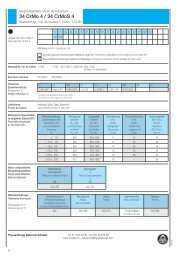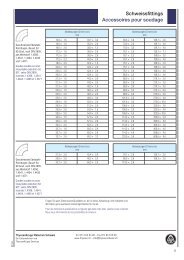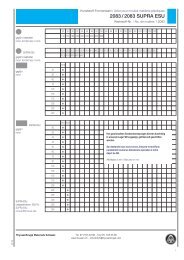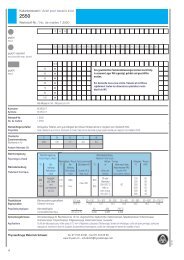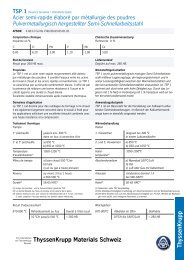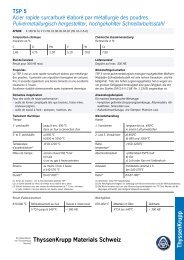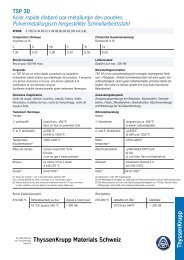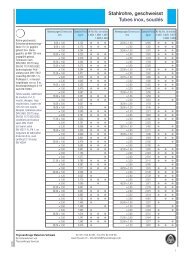Engineering
Engineering
Engineering
Create successful ePaper yourself
Turn your PDF publications into a flip-book with our unique Google optimized e-Paper software.
2.7 Management report on the Group Expected developments and and associated opportunities and and risks risks<br />
We hedge all foreign currency positions<br />
at the time of their inception.<br />
We hedge all foreign currency positions at<br />
the time of their inception.<br />
Pages 116–119<br />
Pages 116–119<br />
Currency risk: To contain the risks of our numerous payment flows in different currencies – in particular in<br />
US dollars – we have developed Groupwide policies for foreign currency management. All companies of the<br />
Group are required to hedge foreign currency positions at the time of their inception; companies based in the<br />
euro zone hedge via our central clearing office. Translation risks arising from the conversion of foreign<br />
currency positions are generally not hedged.<br />
Interest rate risk: To cover our capital requirements, we procured funds on the international money and<br />
capital markets in different currencies and with various maturities. The resulting financial liabilities and our<br />
financial investments are partially exposed to risks from changing interest rates. To manage these risks,<br />
regular interest rate risk analyses are prepared, the results of which feed into our risk management system.<br />
Order risks<br />
Cost overruns and/or schedule delays can occur in the handling of major orders. We counter these risks by<br />
deploying experienced project managers and continuously improving our management instruments. We<br />
select our customers carefully and minimize the risk of default by collecting progress payments.<br />
Sales risks<br />
As a global industrial group, ThyssenKrupp is dependent on the international economic situation. Especially<br />
in the currently weakening global economy, we closely monitor economic trends in our sales regions in order<br />
to minimize the market risks. If necessary we have a package of measures at our disposal, for example an<br />
immediate adjustment of our capacities.<br />
Our international presence in different sectors and our widely differentiated product and customer structure<br />
make us largely independent of regional crises on our sales markets. Our effective receivables management<br />
system counters the risk of bad debt and continuously monitors the credit rating of our customers. More<br />
details on sales risks are provided in the section headed “Specific risks for our operations”.<br />
Risks associated with business relationships with customers in countries with trade restrictions<br />
Due to our global organization, ThyssenKrupp has business relationships in countries subject to trade<br />
restrictions. In 2010 the Federal Republic of Germany, the EU and the USA, acting on the basis of UN<br />
Resolution 1929, expanded existing trade restrictions on the Islamic Republic of Iran to include the<br />
petroleum sector, and added further individuals and a number of banks to the sanctions lists to prohibit<br />
business with them. Violations of the tightened trade restrictions are subject to severe penalties and could<br />
damage ThyssenKrupp’s reputation. We have always complied scrupulously with export control regulations<br />
and in particular trade restrictions. In addition, the Executive Board of ThyssenKrupp AG ordered a review of<br />
the business activities with Iranian customers in existence before the tighter trade restrictions came into<br />
effect to establish whether they comply with the new laws. In September 2010 it was decided that<br />
ThyssenKrupp will not enter into any new transactions with Iranian customers. This measure significantly<br />
reduces the risk of a potential violation of trade restrictions. In addition, an Elevator investment in Iran has<br />
been sold.<br />
112




